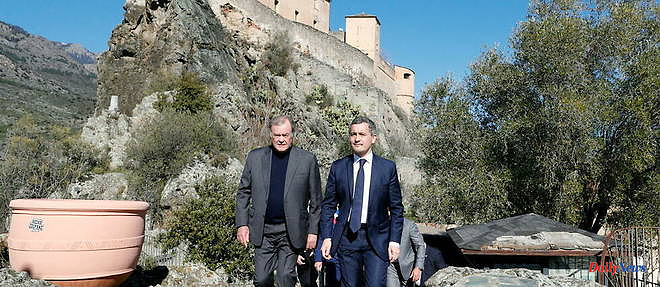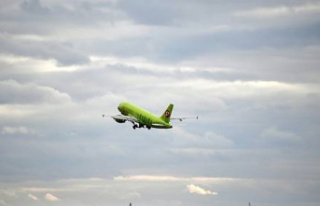The scene takes place one evening in May, in the sparse bays of the National Assembly, and it says a lot about the relationship between the executive and the Corsican nationalist parliamentarians. Deputy Liot (Liberties, Independents, Overseas and Territories) for Haute-Corse Michel Castellani questions the government on a subject that is a priori not very controversial: the means of fighting fires on the island. "I see that no one is listening to me on the bench, which is extraordinarily unpleasant", annoys, at the microphone, the nationalist deputy, because of the attitude of the ministers who, he believes, do not even do not pretend to listen to him.
The Minister Delegate for Local Authorities and Rurality, Dominique Faure, does not bother to hesitate to give the position of the executive on the amendment of the parliamentarian, through a laconic and nonchalant "unfavourable". "Relations have become a bit strained," soberly comments Michel Castellani to Le Point. It's probably the least we can say.
Since March 20, when a motion of censure tabled by the Liot group, to which the three nationalist deputies belong, almost brought down the government following the use of 49.3 on pension reform, the climate has become glacial. "We felt a very clear change in attitude on the side of the executive and the majority," says a close to the autonomist power. Things are not about to get better, as the Liot group continues to give the government cold sweats.
He still hopes to bring together, on June 8, a majority of deputies around a bill aimed at repealing the flagship measure of the reform of the executive: the postponement of the legal age of departure to 64 years. Enough to feed the resentment of the presidential camp towards this small parliamentary group and nationalist deputies in particular, at a time when the Beauvau process, stalled for months, is struggling to regain momentum.
“We cannot, on the one hand, seek negotiations to move towards the autonomy of Corsica and, on the other, persist in wanting to bring down the government with which we are discussing, plagues a ministerial adviser. This rather disloyal attitude does not help to create a climate of trust. The fourth representative of the island in the National Assembly does not say anything else.
The only Corsican elected by the majority, the deputy for Ajaccio and president of the Horizons group, Laurent Marcangeli, goes even further. He does not hesitate to warn his nationalist colleagues about a "frontal opposition" which could thwart the process: "If we are in a political crisis and the government falls, he explains, the future of the Corsica, through the reform they call for, seems less certain to me. »
Negotiations, opened in March 2022 against a backdrop of tensions on the island after the deadly attack by the separatist Yvan Colonna, and which, moreover, never really started. The results of the legislative elections, which had deprived the executive of a majority in the National Assembly, have compromised the prospect of a major constitutional reform from which Corsica's new status is supposed to emerge. Not to mention the passes of arms around the release of nationalist "political prisoners" and a deleterious climate on the island, against a backdrop of the resumption of clandestine attacks, which have never ceased to disrupt this process.
Result: in fifteen months, only three meetings have taken place between the Corsican elected officials and the Minister of the Interior, Gérald Darmanin, charged by the Élysée with leading these "historical" discussions, which could lead to a statute of autonomy. . On May 24, the fourth "strategic committee" on the future of the island was adjourned for the second time for reasons related to the minister's agenda.
If, officially, no break has occurred between the executive and the elected islanders, the latter no longer hide their fears. The Conference of Presidents of the Assembly of Corsica, a body bringing together all the political forces of the regional hemicycle, expressed in a press release its "deep concern about the future of the process", at the announcement of this umpteenth postponement. Their fears are all the more acute as time is running out.
In February, Emmanuel Macron, who was invited to the last Place Beauvau meeting, had indeed announced a constrained schedule by asking Corsican elected officials to submit their copy by July 14. Date on which the Head of State planned to announce the launch of a major institutional reform.
"The clock is ticking and one can only wonder if the government is not trying to buy time," squeaks a pillar of the nationalist camp, who questions the "sincerity" of the executive. Under pressure from elected officials, the date of June 7 was finally announced for a resumption of discussions in Paris. Due to setbacks, the doubt as to the holding of this meeting will persist until the last minute...












